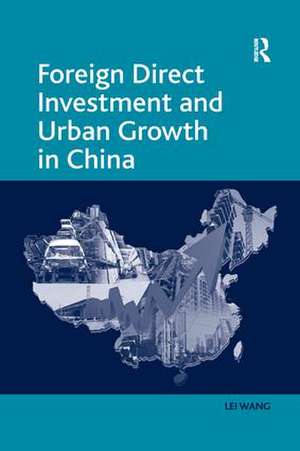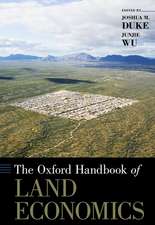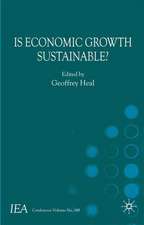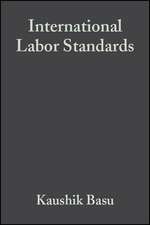Foreign Direct Investment and Urban Growth in China
Autor Lei Wangen Limba Engleză Paperback – 23 noi 2016
| Toate formatele și edițiile | Preț | Express |
|---|---|---|
| Paperback (1) | 469.34 lei 43-57 zile | |
| Taylor & Francis – 23 noi 2016 | 469.34 lei 43-57 zile | |
| Hardback (1) | 1054.71 lei 43-57 zile | |
| Taylor & Francis – 28 iun 2011 | 1054.71 lei 43-57 zile |
Preț: 469.34 lei
Nou
Puncte Express: 704
Preț estimativ în valută:
89.82€ • 93.43$ • 74.15£
89.82€ • 93.43$ • 74.15£
Carte tipărită la comandă
Livrare economică 14-28 aprilie
Preluare comenzi: 021 569.72.76
Specificații
ISBN-13: 9781138260818
ISBN-10: 1138260819
Pagini: 152
Dimensiuni: 156 x 234 x 8 mm
Greutate: 0.45 kg
Ediția:1
Editura: Taylor & Francis
Colecția Routledge
Locul publicării:Oxford, United Kingdom
ISBN-10: 1138260819
Pagini: 152
Dimensiuni: 156 x 234 x 8 mm
Greutate: 0.45 kg
Ediția:1
Editura: Taylor & Francis
Colecția Routledge
Locul publicării:Oxford, United Kingdom
Notă biografică
Dr Lei Wang, Wuhan University, China and Peking University, China
Recenzii
'Dr Wang's volume is an important new addition, as it blends together in-depth analyses of the evolving political and fiscal structures of the country with those of trade and FDI flows and rapid growth of the real estate sector, with emphasis on both national and local dynamisms and constraints. Those seeking to gain a solid understanding of the real factors behind the rapid growth of the Chinese economy, especially its manufacturing and real estate sectors, and an appreciation of the intricate interconnections between those factors, will find this book a worthwhile read.' Minquan Liu, Peking University, China 'This book is a major contribution to our understanding of the underlying dynamic through which China has achieved such impressive GDP growth statistics over the past several decades. It is especially important in making clear the critical importance of the connection between the patterns of urbanization that complemented but that were also shaped by the localized forms that foreign direct investment took and by revealing the costs as well as the benefits that these urbanization and FDI patterns created. If China is to continue on its impressive path of growth and development, national and local policies makers will do well to consider the findings of Lei Wang's research presented here. For those looking to the Chinese experience for lessons for elsewhere this book will be a vital primer.' Elliott Sclar, Columbia University, USA 'The book is informative on historical trends and institutional context. Readers interested in urban growth, regional variation, and institutional changes will benefit from this book.' Urban Studies
Cuprins
Introduction; Chapter 1 Toward a Demand-Side Perspective for FDI Dynamics in China; Chapter 2 Rise of Entrepreneurial Local States; Chapter 3 Growth of Urban Real Estate Sector; Chapter 4 Competition for Manufacturing Investments and the Demand for FDI; Chapter 5 Representations of Entrepreneurial Urban Growth across Regions in China; conclusion Conclusions: Toward Sustainable Urban Development;
Descriere
This book puts forward an institutional explanation of the recent dynamics of foreign direct investment (FDI) in China. By identifying the interactions between cross-border capital flow, national regulations and local responses, this book provides a fresh understanding of China's FDI pattern from an urban perspective that has been rare among similar publications. It also sheds light on the drivers underlying China's rapid economic growth and its implications for sustainable development.











